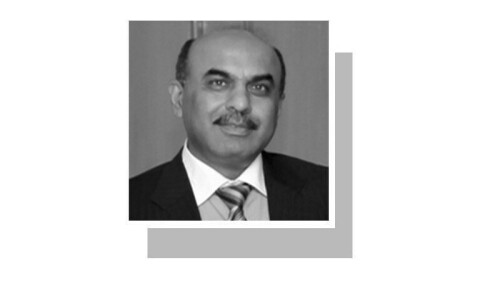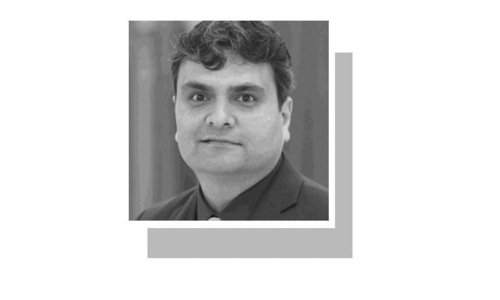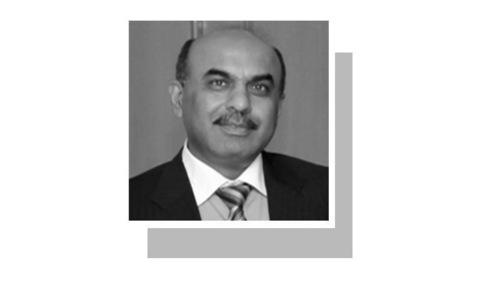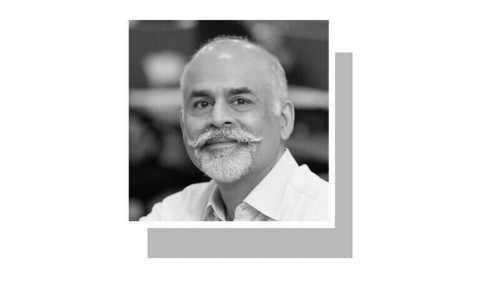Aficionados of the local live music scene are familiar with her voice; she does small but powerful performances often singing ‘difficult’ songs almost effortlessly. Those who haven’t been fortunate enough to be serenaded by her live performance would know her as the mellifluous voice behind many a television drama soundtracks — most notably, for the award-winning soundtrack for Dil-i-Muztar.
Alycia Dias attributes the existence and success of her playback singing career to musician and producer Waqar Ali (brother of the famous Pakistani singer Sajjad Ali). It didn’t take him long to see the potential that Alycia’s voice had and he immediately selected her to sing for the soundtrack of the 2013 Urdu-dubbed version of the Turkish drama serial, Noor. Since then, Alycia’s playback career simply took off.
She recently held a series of concerts at the Pak-American Cultural Centre (PACC) in Karachi. “This is my first ever solo concert,” she clarified. “I’ve done a lot of private gigs otherwise.” Members of her band include, among others, her father Max Dias and her brother Joshua Dias as well. Needless to say, music is a very important part of the family. “My father has played for a lot of very prominent musicians as well,” she added, “including Strings, Hadiqa Kiyani, Sajjad Ali, Atif Aslam …”
In person, Alycia Dias comes across as very young and somewhat delicate. It’s hard to imagine that such a powerful voice emanates from this rather petite, dusky beauty.
Alycia Dias is proof that big things come in small packages
And she is. Young, that is. At 22-years-old, she’s still in college and is completing her baccalaureate from Iqra University. Not only that, she’s also a mum.
Alycia has an adorable two-year-old daughter with a head full of brown curly hair and her mother’s large almond-shaped eyes. She often made her way to the singer during the course of the interview and looked up quizzically at her before going off to join some of the other children that were present at the venue.
How does she manage to juggle her singing career, studies and parenthood all at the same time? “With a lot of help,” she laughs. “I couldn’t have done any of this without my mother. She helps a lot.” But singing professionally while in college doesn’t come without its sacrifices. “I had to take this semester off because I had so many gigs to perform at,” she informed.
She began singing in her church’s choir when she was just five or six years of age. “I only stopped singing in the choir around five years ago,” she said. One wondered whether that helped her develop her vocal skills. “Not really,” responded the crooner. “I only began improving when I started singing (professionally) two years ago. In Pakistan we don’t have professional vocal coaches but I realised the more you practice, the more you improve.”
When she was younger, the young singer idolised the vocal virtuosity of Celine Dion. “I wanted to be like her,” she said. “But I didn’t want to be her.” What’s the sweetest compliment she’s gotten so far after a performance? “That I’m the best singer in Pakistan!” she laughed, adding that she personally doesn’t feel that way. What’s the strangest compliment she’s gotten? “People would come up to me and tell me I sing like Hadiqa Kiyani or Zoe Viccaji …” she responded, “I’ve never known how to respond to that.”
She might’ve recorded many songs in Urdu during the course of her playback career but English is a language she’s more comfortable singing and writing in. “I’ve had to work very hard to get my Urdu pronunciation just right,” she said. “I don’t have a problem singing in Urdu, as long as someone else writes the song for me.”
She doesn’t seem to be in a hurry to record an album or launch her solo music career, but considering that she’s just completed her first solo live performances, it’s best to take one step at a time. And at 22, time is still on her side.
Published in Dawn, Sunday Magazine, November 23rd, 2014
















































